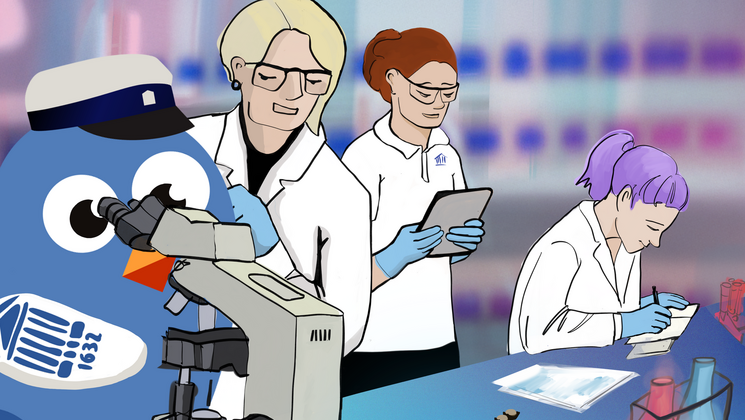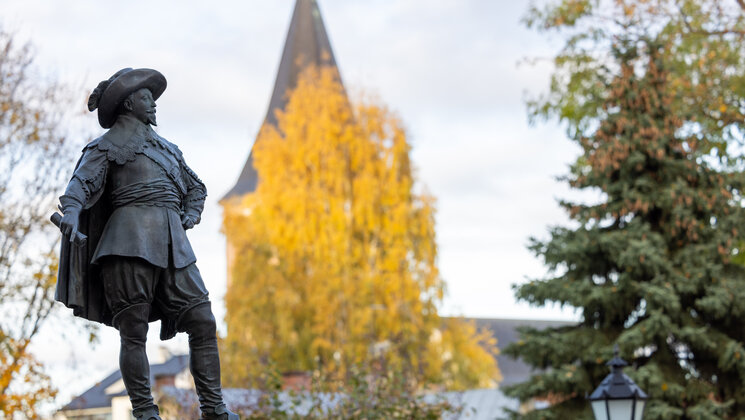-
Faculty of Arts and HumanitiesDean's Office, Faculty of Arts and HumanitiesJakobi 2 ruumid 116–121, 51005 Tartu linn, EST0Institute of History and ArchaeologyJakobi 2 51005 Tartu linn, Tartu linn, Tartumaa EST0Institute of Estonian and General LinguisticsJakobi 2, IV korrus 51005 Tartu linn, Tartu linn, Tartumaa EST0Institute of Philosophy and SemioticsJakobi 2, III korrus, ruumid 302-337 51005 Tartu linn, Tartu linn, Tartumaa EST0Institute of Cultural ResearchÜlikooli 16 51003 Tartu linn, Tartu linn, Tartumaa EST0Institute of Foreign Languages and CulturesLossi 3 51003 Tartu linn, Tartu linn, Tartumaa EST0School of Theology and Religious StudiesÜlikooli 18 50090 Tartu linn, Tartu linn, Tartumaa EST0Viljandi Culture AcademyPosti 1 71004 Viljandi linn, Viljandimaa EST0Professors emeriti, Faculty of Arts and Humanities0Associate Professors emeriti, Faculty of Arts and Humanities0Faculty of Social SciencesDean's Office, Faculty of Social SciencesLossi 36 51003 Tartu linn, Tartu linn, Tartumaa EST0Institute of EducationJakobi 5 51005 Tartu linn, Tartu linn, Tartumaa EST0Johan Skytte Institute of Political StudiesLossi 36, ruum 301 51003 Tartu linn, Tartu linn, Tartumaa EST0School of Economics and Business AdministrationNarva mnt 18 51009 Tartu linn, Tartu linn, Tartumaa EST0Institute of PsychologyNäituse 2 50409 Tartu linn, Tartu linn, Tartumaa EST0School of LawNäituse 20 - 324 50409 Tartu linn, Tartu linn, Tartumaa EST0Institute of Social StudiesLossi 36 51003 Tartu linn, Tartu linn, Tartumaa EST0Narva CollegeRaekoja plats 2 20307 Narva linn, Ida-Virumaa EST0Pärnu CollegeRingi 35 80012 Pärnu linn, Pärnu linn, Pärnumaa EST0Professors emeriti, Faculty of Social Sciences0Associate Professors emeriti, Faculty of Social Sciences0Faculty of MedicineDean's Office, Faculty of MedicineRavila 19 50411 Tartu linn, Tartu linn, Tartumaa ESTInstitute of Biomedicine and Translational MedicineBiomeedikum, Ravila 19 50411 Tartu linn, Tartu linn, Tartumaa ESTInstitute of PharmacyNooruse 1 50411 Tartu linn, Tartu linn, Tartumaa ESTInstitute of DentistryL. Puusepa 1a 50406 Tartu linn, Tartu linn, Tartumaa ESTInstitute of Clinical MedicineL. Puusepa 8 50406 Tartu linn, Tartu linn, Tartumaa ESTInstitute of Family Medicine and Public HealthRavila 19 50411 Tartu linn, Tartu linn, Tartumaa ESTInstitute of Sport Sciences and PhysiotherapyUjula 4 51008 Tartu linn, Tartu linn, Tartumaa ESTProfessors emeriti, Faculty of Medicine0Associate Professors emeriti, Faculty of Medicine0Faculty of Science and TechnologyDean's Office, Faculty of Science and TechnologyVanemuise 46 - 208 51003 Tartu linn, Tartu linn, Tartumaa ESTInstitute of Computer ScienceNarva mnt 18 51009 Tartu linn, Tartu linn, Tartumaa ESTInstitute of GenomicsRiia 23b/2 51010 Tartu linn, Tartu linn, Tartumaa ESTEstonian Marine Institute0Institute of PhysicsInstitute of ChemistryRavila 14a 50411 Tartu linn, Tartu linn, Tartumaa EST0Institute of Mathematics and StatisticsNarva mnt 18 51009 Tartu linn, Tartu linn, Tartumaa EST0Institute of Molecular and Cell BiologyRiia 23, 23b - 134 51010 Tartu linn, Tartu linn, Tartumaa ESTTartu ObservatoryObservatooriumi 1 61602 Tõravere alevik, Nõo vald, Tartumaa EST0Institute of TechnologyNooruse 1 50411 Tartu linn, Tartu linn, Tartumaa ESTInstitute of Ecology and Earth SciencesJ. Liivi tn 2 50409 Tartu linn, Tartu linn, Tartumaa ESTProfessors emeriti, Faculty of Science and Technology0Associate Professors emeriti, Faculty of Science and Technology0Institute of BioengineeringArea of Academic SecretaryHuman Resources OfficeUppsala 6, Lossi 36 51003 Tartu linn, Tartu linn, Tartumaa EST0Area of Head of FinanceFinance Office0Area of Director of AdministrationInformation Technology Office0Administrative OfficeÜlikooli 17 (III korrus) 51005 Tartu linn, Tartu linn, Tartumaa EST0Estates Office0Marketing and Communication OfficeÜlikooli 18, ruumid 102, 104, 209, 210 50090 Tartu linn, Tartu linn, Tartumaa EST0Area of Vice Rector for DevelopmentCentre for Entrepreneurship and InnovationNarva mnt 18 51009 Tartu linn, Tartu linn, Tartumaa EST0University of Tartu Natural History Museum and Botanical GardenVanemuise 46 51003 Tartu linn, Tartu linn, Tartumaa EST0International Cooperation and Protocol Office0University of Tartu MuseumLossi 25 51003 Tartu linn, Tartu linn, Tartumaa EST0Area of RectorRector's Strategy OfficeInternal Audit OfficeArea of Vice Rector for Academic AffairsOffice of Academic AffairsUniversity of Tartu Youth AcademyUppsala 10 51003 Tartu linn, Tartu linn, Tartumaa EST0Student Union OfficeÜlikooli 18b 51005 Tartu linn, Tartu linn, Tartumaa EST0Centre for Learning and TeachingArea of Vice Rector for ResearchUniversity of Tartu LibraryW. Struve 1 50091 Tartu linn, Tartu linn, Tartumaa EST0Grant Office
Degree Course on knowledge production at the University of Tartu on December 9-10, 2011
"Analysis of knowledge production in the context of (national) heritage scholarship"
Degree Course of the Estonian Graduate School of Culture Studies and Arts (GSCSA)
Organized by the University of Tartu; Estonian Graduate School of Culture Studies and Arts; ESF Grant "Analysis of Knowledge Production in the Context of (National) Heritage Scholarship"; Centre of Excellence in Cultural Theory (CECT)
2 ECTS credits
The seminar on knowledge production proposes to look at sources and practices of ’knowledge production’ that could be largely termed as cultural heritage studies. This inquiry proceeds from a reflexive investigation of disciplinary histories of scholarship embedded in and shaping the nation-building processes (e.g. ethnology, history, literature, etc). The making of archives and museums, the formation of depositories for past repertories, and for records of past cultural practices or artefacts – all backed by the establishment of relevant academic programmes – has inherently served the purpose of creating a national cultural heritage.
With a view of unraveling the institutionalization and social dissemination of scholarly knowledge, we propose to explore the politics of institutions, the knowledge legacies of seminal figures in the field and the identification of their object of research from a historical perspective and in relevant socio-political context, while taking into account particular rhetoric and political contingencies. The study of knowledge making practices in cultural research sheds light on disciplinary histories, the authoritative positions created, and the establishment of institutionalized knowledge format.
The aim of this event is an interdisciplinary discussion of current research methodologies, the enhancement of international cooperation in scholarship, and the involvement of young researchers or graduate students in an academic exchange of ideas that would go beyond the usual conference or lecture outline. The participants will include nine established scholars and twenty doctoral students.
The scholars participating at the seminar and their topics of interest are following:
Prof. Simon Knell (University of Leicester) "Approaching the object"
Prof. Kristin Kuutma (University of Tartu) "Knowledge production and ethnographic representation"
Prof. Stefan Berger (University of Bochum/University of Manchester) "National archives, national museums and national histories in nineteenth and twentieth century Europe"
Dr. Marek Tamm (Tallinn University) "Afterlife of events: How past becomes historical?"
Prof. Dr. Regina Bendix (Georg-August-Universität Göttingen) "One language, three research cultures: German language Volkskunde after 1945"
Dr. Mikaela Fenske (Georg-August-Universität Göttingen) "Narrating region, narrating nation"
Dr. Monika Baar (University of Groningen) – the role of academies, learned and literary societies in the foundation and institutionalization of the national heritage
Dr. Pertti Anttonen (University of Helsinki) "Tradition and heritage as lists and catalogues"
Dr. Ergo-Hart Västrik (University of Tartu) "Folklore archives and political change"
Organization
The graduate school program consists of academic presentations and discussions.
The seminar will be carried out in 4 sessions. Each session will include about 3 presentations of 20 minutes with a longer discussion to follow, where the main discussants are expected to be the presenters themselves.
Key topics:
1. nationalism and ethnographic studies
2. nationalism and history (historical records)
3. heritage and literature (literary works)
4. knowledge production and heritage (conceptualization of heritage)
The essence of the session will be discussion. Each lecturer chooses 1-2 relevant articles/chapters for student assignment.
Students are proposed to give a 10 minute talk on their research topic or write a reflection (1500-2500 words) on the seminar by December 29. Student presentations are chosen by the organizers via abstracts sent for application and assigned to a matching session.
Requirements for participation
Interested graduate students should send an abstract (500-600 words) related to the key topics of the seminar by November 5, 2011. Students who are not members of GSCSA are required to add a short CV to specify their education and research interests.
E-mail address: ktkdk@ut.ee This e-mail address is being protected from spambots. You need JavaScript enabled to view it
You will be notified of the acceptance of your contribution by November 12, 2011. The literature of the seminar will be available by that time.
Seminar venue and practical side
Graduate seminar takes place in Tartu: Zaal, Raekoja square 10, III floor.
The language of the course is English. Participation at the seminar will be free of charge for the confirmed participants (this includes accommodation, food). More information about accommodation choices will be provided for the participants.
Programme director: Kristin Kuutma
Seminar assistant: Monika Tasa
Student coordinator: Helen Kästik, ktkdk@ut.ee This e-mail address is being protected from spambots. You need JavaScript enabled to view it
Seminar is supported by the European Social Fund (GSCSA), European Regional Fund (CECT), European Science Foundation (ETF Grant No. 7795).
Read more similar news






